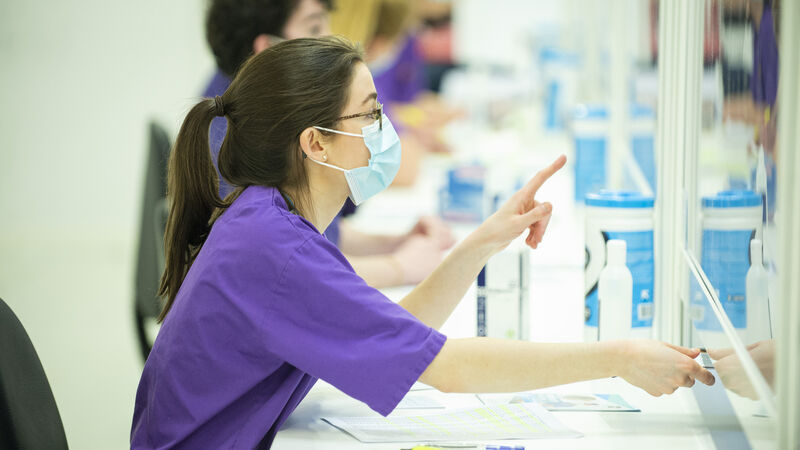Further delays to healthcare workers' vaccine roll-out

The HSE is still confident the majority of over-85s will receive their vaccines from Pfizer-BioNTech and Moderna. Picture: Gerard McCarthy
The vaccination roll-out among healthcare workers may be delayed for the second week running due to changes to AstraZeneca's delivery schedule.
100,000 doses of all vaccines should have been delivered by Sunday, February 28, but Monday's figures showed 81,843 instead.










